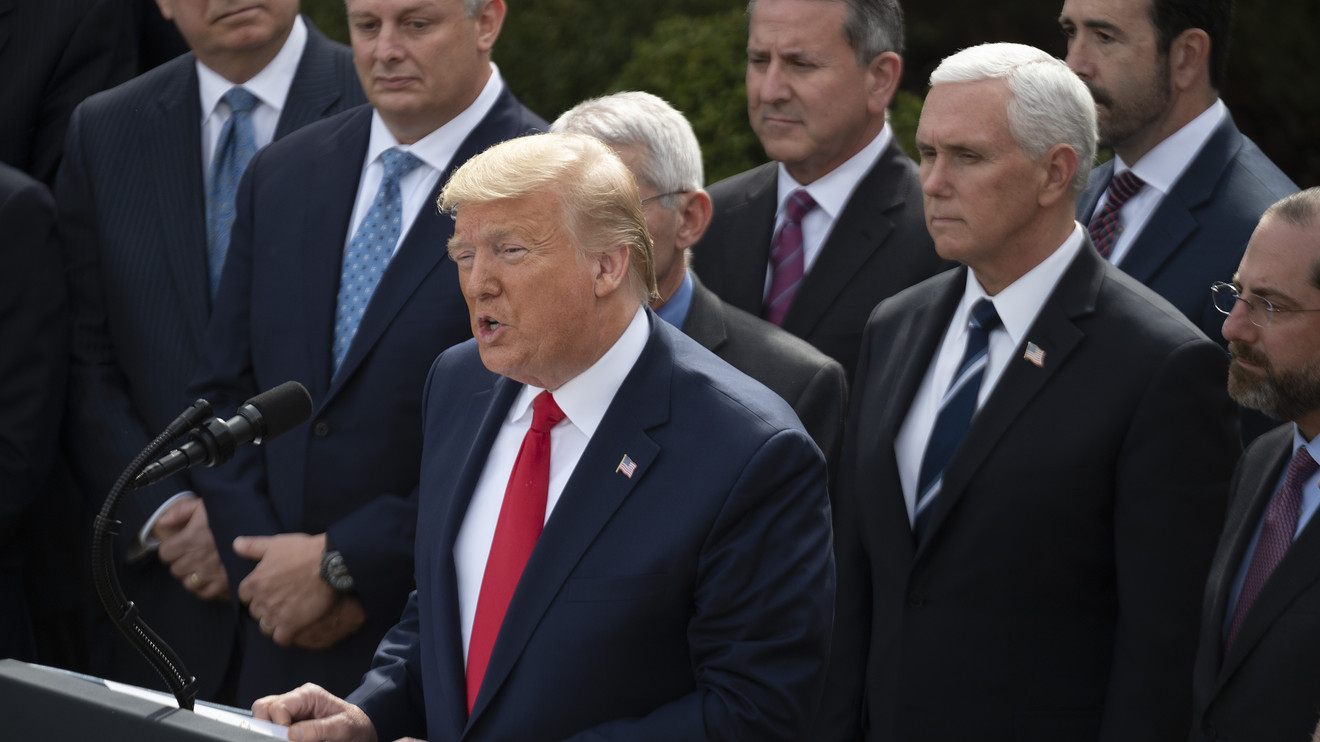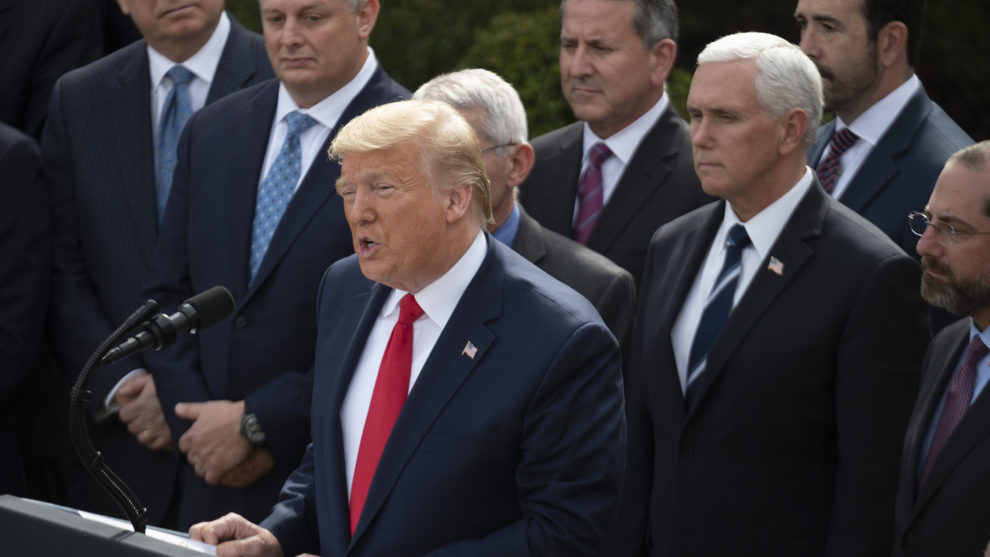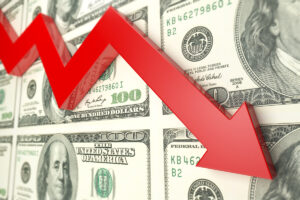
One part of President Donald Trump’s answer to the financial fallout from the coronavirus pandemic is a freeze on collecting interest on student loan payments.
“It’s a big thing for a lot of students left in the middle right now,” Trump said Friday afternoon in a Rose Garden address declaring a national emergency and opening up access to $50 billion in federal aid. Trump said his declaration will help deliver coronavirus testing on a wide scale.
Trump’s order on student loans does not halt student loan payments altogether.
Instead, the order waives the requirement that borrowers pay interest on federally-held loans, a Department of Education spokeswoman said, including loans in income-driven repayment and loans in forbearance. That means borrowers will still keep paying, but it will only be on the loan’s principal.
The interest waiver is automatic and effective immediately. The department will start putting the measure into effect over the next week or so, the spokeswoman said.
Earlier in the day, Treasury Secretary Steven Mnuchin said the Trump administration was weighing whether to let student-loan borrowers temporarily stop making payments.
In a CNBC interview on the administration’s response to the coronavirus outbreak and the financial fallout, Mnuchin said a possible payment pause, potentially for three months, was “on our list of 50 different items we’re bringing to the president for a decision.”
Mnuchin revealed the possibility as CNBC host Jim Cramer pressed him on how the administration could free up money for large companies, small businesses and especially for regular Americans who’ve been rocked by an outbreak that is making many consumers stay inside and keep their wallets closed.
Cramer asked about the millennial generation, which is between the age of 23 and 38 — and poised to become three quarters of the global workforce by 2025.
“They are burdened with a lot of student debt. Can we suspend their payments for the next three months so they suddenly have money in their pockets?” Cramer asked.
Americans owe $1.5 trillion in student debt, loans that are lent out by the federal government. Borrowers between the age of 18 and 39 owe approximately $860 billion, according to Federal Reserve Bank of New York data.
A typical monthly student loan payment ranges from $200 to $299, according to Federal Reserve findings.
“We’re going to beat this thing and we need these people ready, willing and able to go back to work, and we need them to have enough money to sustain this period. Suspend student debt — just for three months, not cancelling, what do you think?” Cramer asked.
“Jim, I can tell you that’s on our list of 50 different items we’re bringing to the president for a decision. So that will be something we’re looking at,” Mnuchin replied.
Mnuchin mentioned the possible halt on student loan payments a day after the Federal Reserve said it would lend $1.5 trillion to the short-term lending markets.
Rep. Alexandria Ocasio-Cortez, a Democratic representative from the Bronx, noted the government was pouring the same amount of money into financial markets that student loan borrowers owed.
“There is absolutely NO excuse for not pausing student debt collections, planning for mortgage &rent relief, etc. We need to care for working people as much as we care for the stock market,” she wrote on Twitter TWTR, +9.37% .
Ocasio-Cortez is a supporter of presidential hopeful Sen. Bernie Sanders, who has long been campaigning for wholsesale student debt cancellation.
Other borrower advocates say the government should suspend student loan payments.
“As people become sick, and as the effects of the virus ripple through the economy, the coronavirus is going to make it harder for many student loan borrowers to pay their student loans,” said the National Consumer Law Center, which is an advocacy group pressing consumer and borrower protections.
“Lenders and the Department of Education should excuse all borrowers from making student loan payments while we have an ongoing public health emergency,” the organization said Friday.
Lenders should also ”stop interest accrual and capitalization, so that student debt does not further balloon as a result of the crisis.”









